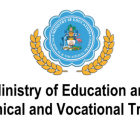(Nassau, Bahamas) – The Ministry of Health is acutely aware of the situation regarding the Ebola Virus Disease (EVD) situation globally and would like to take this opportunity to again address and update the Bahamian people regarding the topic.
The current Ebola outbreaks in West and Central Africa started in December of 2013 with the World Health Organization being made aware of the gravity of the situation in March of 2014. A total of 8470 confirmed, probable, and suspected cases of Ebola virus disease (EVD) have been reported in eight affected countries (Guinea, Liberia, Nigeria, Senegal, Sierra Leone, Democratic Republic of Congo, Spain, and the United States of America) up to the 10th October. There have been 4076 deaths.
On 30 September 2014, the Pan American Health Organization/World Health Organization (PAHO/WHO) was informed of the first confirmed imported case of EVD in the United States.The patient passed away on 8 October. On 6 October 2014, WHO was informed of the first confirmed case of human-to-human transmission of EVD in Spain, after a health care worker (HCW) tested positive for EVD after treating a patient who had been repatriated from West Africa. This case represented the first human-to-human transmission of EVD outside of Africa. Most recently we have been informed of a second case of human-to-human transmission of EVD, this time in the United States in a health care worker caring for the imported case of EVD there.
Again, this course of events has been of particular interest to the Bahamas because of the volume of travelers to our islands, and the travel of our residents throughout the globe and returning to our shores. The Ministry of Health began spearheading the nation’s preparation and response to Ebola months prior to its introduction to our hemisphere. Stakeholder groupings were gathered to assess the readiness of the health sector (public and private) for an encounter with Ebola. After assessment, definitive plans and actions for improving the system readiness were enacted, including procurement of Personal Protective Equipment (PPE), defining reporting structures and mechanisms, establishing linkages with international organizations and testing facilities, training of personnel in relevant recognition and treatment protocols, among other actions. During the preparation of the health sector, engagement was initiated with our non-health sector stakeholders to include our armed forces, border control officials, ports of entry entities, national emergency planning agencies, the media, and many others. These discussions and planning activities resulted in the drafting of a National Ebola Response Plan as a focused exercise between the Ministry of Health and the Pan American Health Organization. The foundation of the plan included the national response plans for cholera, pandemic influenza, and Severe Acute Respiratory Syndrome (SARS) but taking into account the unique features of Ebola.
The Bahamian public should know that as the Ebola situation continues to evolve so will our plans, as both are dynamic. The exercise involving the suspected case of Ebola in-country in mid-September presented us with an opportunity to test our preparation. Although areas in need of strengthening were identified, and are being addressed, we have been commended by our Caribbean, regional and global partners for our handling of the situation. We will not leave any stone unturned we know that complacency will threaten our national security and potentially our way of life. We will remain vigilant in ensuring that the population’s health is protected from this and all threats with the most appropriate response we can provide. We look forward to engaging with all partners throughout the public and privatesectors in order to ensure thisglobal threat is contained and ends.
Ebola Virus Disease is a severe disease characterized by; sudden onset of fever, intense weakness, muscle pain, headache and sore throat. These symptoms may be followed by; vomiting, diarrhea, rash, impaired kidney and liver function and in some cases both internal and external bleeding. The World Health Organization has recommended persons avoid unnecessary travel to Ebola affected countries at this time. Persons who do travel to affected areas should ensure that necessary precautions are taken to avoid exposure, especially avoiding the bodily fluids of symptomatic patients. Travellers who experience any of the above mentioned symptoms within 21 days of arriving in the Bahamas should consult their health care provider immediately or contact the Surveillance Unit at 502-4776/502-4790/397-1021/376-3533.
For further information please visit the Ministry of Health’s website at www.bahamas.gov.bs/health or www.who.org/int .





